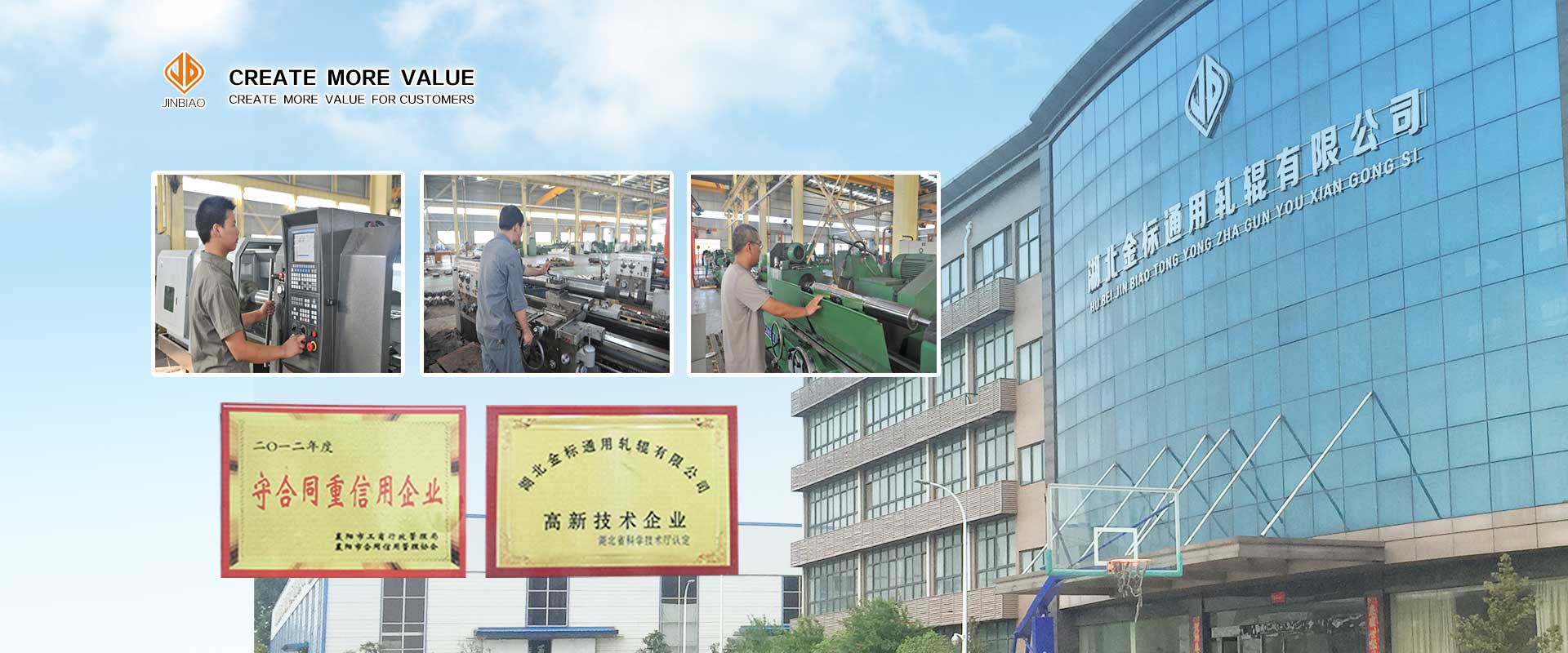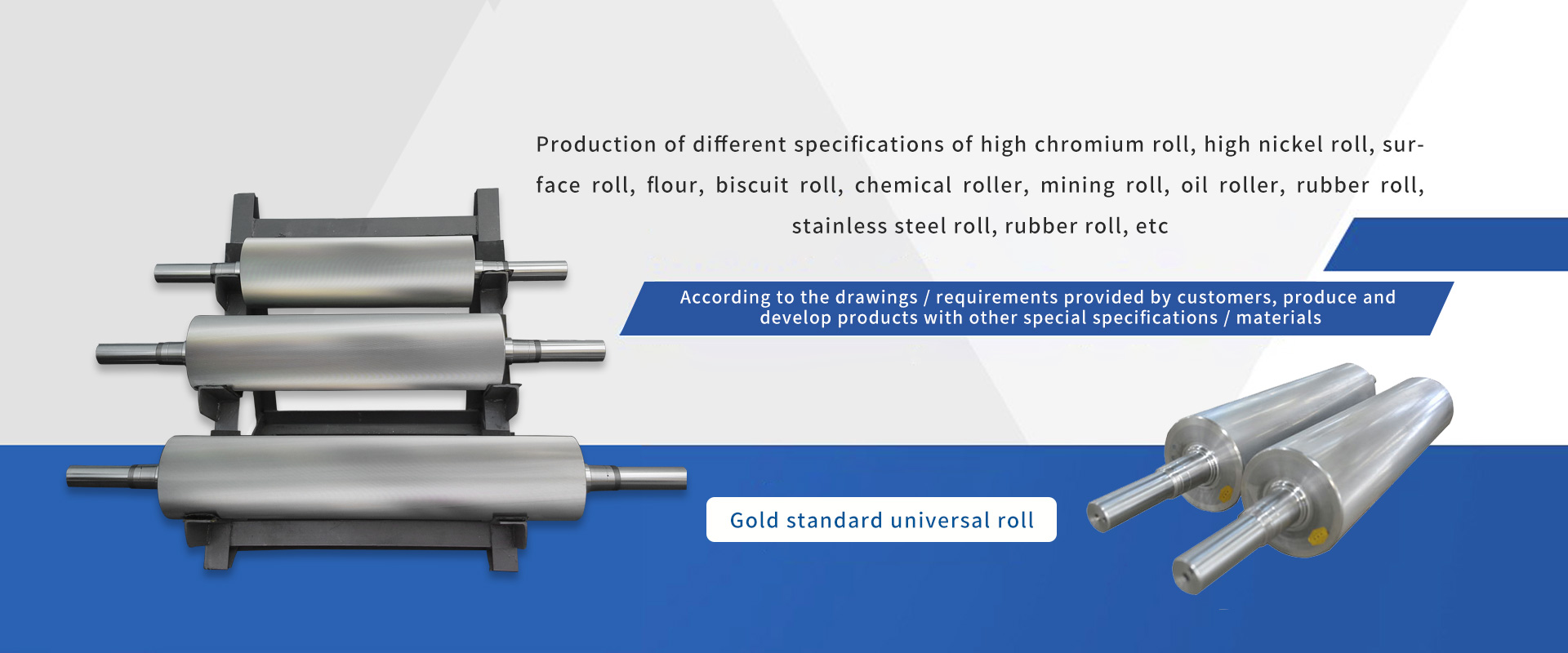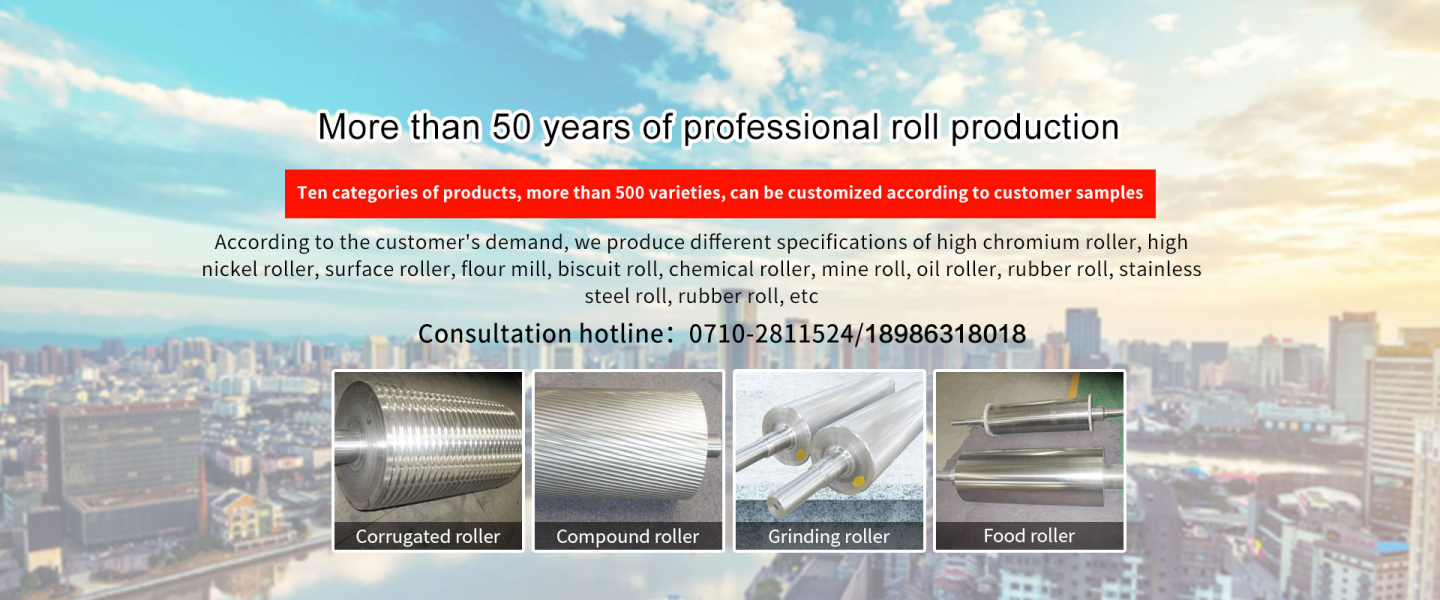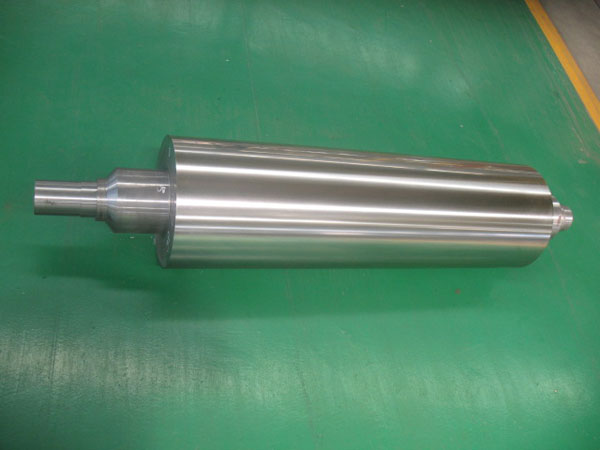What a roll is: a roll is a tool that uses the pressure created by the rolling of a pair or group of rolls to roll steel, causing the metal to deform plastically. The rollers are mainly subjected to static and dynamic loads, wear and temperature changes during rolling. The common heat treatment types of roll include Stress Relief Annealing, isothermal spheroidizing annealing, diffusion annealing, normalizing, tempering, quenching and cryogenic treatment. Roll features and uses: cold hard cast iron roll wear resistance, smooth surface, used for small load finishing roll. The infinitely chilled cast iron roll has the characteristics of wear resistance, hot cracking resistance and moderate strength. It is used for all kinds of hot strip work rolls, small and wire rolls. Ball mill cast iron roll has high strength and toughness, hot crack resistance and wear resistance better than steel roll. It is used for all kinds of profile steel roll, hot plate steel work roll with heavy load, leveling roll and backup roll.
Roll types: according to the process method is divided into integral roll, metallurgical composite roll and combination roll; according to the forming method can be divided into casting roll and forging roll. The outer layer and core of the integral roll and the roll neck are cast or forged from a single material. A cast roll is a type of roll made by pouring molten steel or molten iron directly into the mode of production. Integral Roll, metallurgical
composite roll, composite roll







